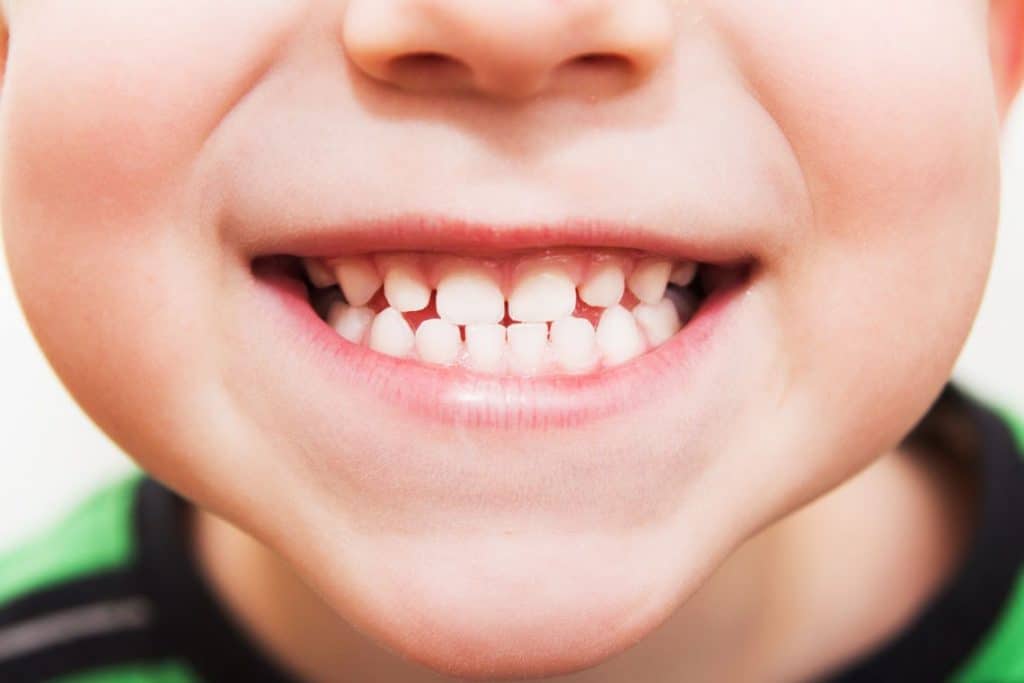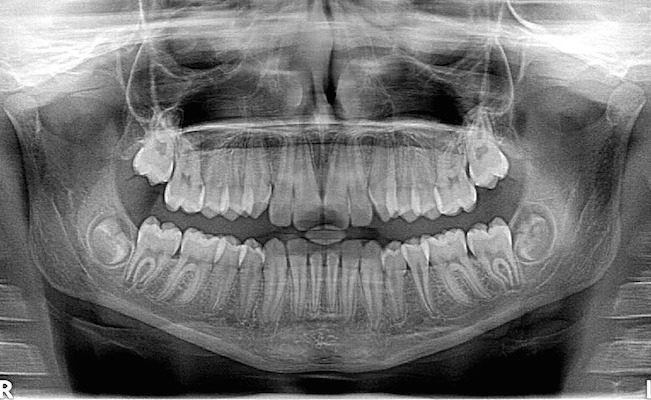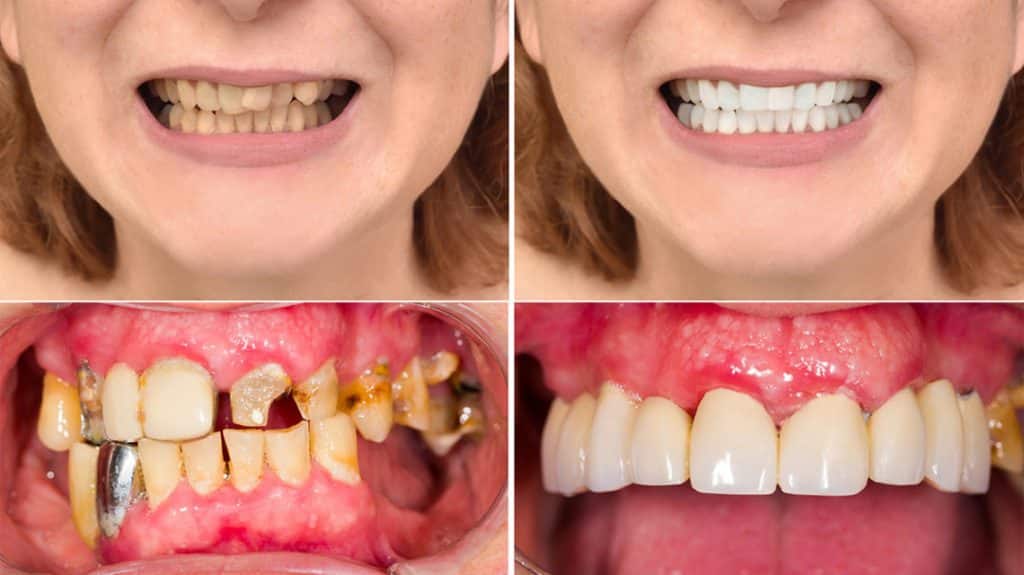Teeth are made of a hard substance called enamel, which covers a softer layer called dentin. Additionally, teeth are anchored in the jawbone by the roots, which are made of a bone-like tissue called cementum and connective tissue called periodontal ligaments.
The color of the teeth is determined by the thickness and color of the enamel, as well as the dentin underneath. Tooth decay can occur when the enamel is damaged by acid produced by bacteria in the mouth, leading to cavities.
It is important to take care of our teeth by practicing good oral hygiene habits and seeing a dentist regularly to prevent and treat any dental issues.

Credit: www.amazon.com
The Outer Layer: Enamel
Enamel, the outer layer of your teeth, acts as a protective armor. This incredible substance is known for its strength and hardness. Understanding the structure of enamel reveals its remarkable qualities. Its composition consists of hydroxyapatite, a mineral that provides durability and resistance to acid attacks.
Enamel shields the sensitive dentin and dental pulp beneath it and defends against the daily wear and tear caused by biting and chewing. With proper oral hygiene, including regular brushing and flossing, you can help preserve the integrity of your enamel.
So, next time you marvel at the strength of your teeth, remember the vital role that enamel plays in keeping them strong and healthy.
The Inner Layer: Dentin
Teeth are composed of different layers, with dentin being the main component beneath the enamel. Dentin has a unique tubular structure, which is responsible for its role in providing support to the teeth. These tiny tubules run through the dentin, allowing it to transmit sensory information and contribute to tooth sensitivity.
Dentin is similar in density to bone and is composed of mineralized tissues, water, and organic matter. It plays a crucial role in protecting the dental pulp, where the nerves and blood vessels are located. Understanding the composition of teeth, particularly the inner layer of dentin, helps us appreciate the complexity and functionality of these essential parts of our oral health.
The Core: Dental Pulp
The dental pulp is a living tissue at the center of your tooth. Within it, you can find the nerves and blood vessels responsible for various crucial functions. Maintaining oral health heavily relies on the dental pulp’s role, which includes sensory responses and provision of nutrients to the tooth.
Additionally, the dental pulp aids in the formation of dentin, the hard substance that protects the tooth’s inner layers. Without dental pulp, teeth would lose their vitality and become more prone to decay and infections. Consequently, the health of the dental pulp is vital for the overall well-being of your teeth.
Understanding the composition and functions of teeth will help you appreciate their importance and take better care of them.
The Supporting Structures: Cementum And Periodontal Ligament
Teeth are composed of two crucial supporting structures: cementum and the periodontal ligament. Cementum acts as a vital layer, anchoring the tooth firmly to the jawbone, ensuring stability. The importance lies in its ability to keep the tooth securely in place, preventing any unnecessary movement.
On the other hand, the periodontal ligament serves as connective tissue that secures the tooth within its socket. Together, these structures work harmoniously to provide the necessary support and stability for our teeth, allowing us to perform essential day-to-day functions such as chewing and speaking confidently.
Understanding the role of cementum and the periodontal ligament highlights how integral these structures are in maintaining overall oral health and ensuring our teeth remain strong and functional for a lifetime.
The Surprising Facts About Tooth Composition
Teeth, often overlooked, hold surprising facts about their composition. They boast a fascinating presence of minerals, which contribute to their strength and durability. It’s intriguing how genetics play a significant role in determining tooth composition, resulting in varying characteristics among individuals.
Amidst the general makeup, there are unusual cases of teeth with exceptional compositions, adding to the diversity exhibited in dental structures. These extraordinary instances warrant exploration and study, shedding light on the intricacies of tooth formation and development. Understanding what teeth are made of goes beyond simple curiosity, offering insights into oral health and dental care practices.
Appreciating the complex nature of tooth composition enhances our comprehension of oral structures and promotes healthier dental habits. Teeth truly embody a remarkable blend of minerals and genetic influences, making them a subject deserving of fascination and study.
Frequently Asked Questions Of What Are Teeth Made Of
What Is The Composition Of Teeth?
Teeth are primarily made up of hard tissues such as enamel, dentin, and cementum. Enamel is the outermost layer that protects the teeth, while dentin makes up the bulk of the tooth structure. Cementum covers the root of the tooth and attaches it to the jawbone.
These tissues, along with blood vessels and nerves, contribute to the overall structure and function of teeth.
How Does Enamel Contribute To Tooth Strength?
Enamel is the hardest tissue in the human body, providing strength and protection to the teeth. It is composed of minerals such as hydroxyapatite, which makes it highly resistant to wear and tear. Enamel acts as a shield against bacteria and acid attacks, helping to prevent tooth decay and cavities.
What Is Dentin And Its Role In Tooth Sensitivity?
Dentin is the layer beneath the enamel and forms the main structure of the tooth. It contains microscopic tubules that connect to the nerves inside the tooth. When dentin is exposed due to enamel erosion or gum recession, it can lead to tooth sensitivity.
The dentin tubules transmit sensations like temperature and touch, causing discomfort when stimulated.
What Is The Function Of Cementum In The Tooth?
Cementum is a thin layer that covers the root of the tooth, anchoring it to the jawbone through periodontal ligaments. It helps to support the tooth and provides a secure attachment. Cementum also acts as a protective barrier, preventing bacteria from entering the root surface and causing infection or decay.
Are Teeth Made Of Bone?
Although teeth and bones share some similarities, they are different in composition and structure. Teeth are composed of specialized tissues, including enamel, dentin, and cementum, while bones contain collagen, calcium, and minerals. Unlike bones, teeth cannot regenerate or self-repair if damaged, highlighting their unique nature within the body.
How Can I Keep My Teeth Strong And Healthy?
To maintain strong and healthy teeth, it is important to practice good oral hygiene. This includes regular brushing with fluoride toothpaste, flossing daily, and visiting the dentist for check-ups and cleanings. Additionally, a balanced diet, limiting sugary snacks and drinks, can help prevent tooth decay.
Conclusion
Understanding what teeth are made of is essential for maintaining good oral health. The composition of teeth, primarily consisting of enamel, dentin, cementum, and pulp, provides them with strength and protection. Enamel, the outermost layer, is the hardest substance in the body but can still be damaged by poor oral hygiene practices.
Dentin provides support to the enamel and possesses tiny tunnels that connect to the innermost layer, the pulp, which houses blood vessels and nerves. Cementum covers the tooth root and helps anchor it to the jawbone. By taking proper care of our teeth through regular brushing, flossing, and dental visits, we can ensure their longevity and avoid common dental issues like cavities, tooth decay, and gum disease.
Maintaining a healthy diet and avoiding harmful habits like smoking or excessive sugar intake also play a crucial role in keeping our teeth strong and functional. So, remember to prioritize your oral health as it is key to a confident smile and overall well-being.








